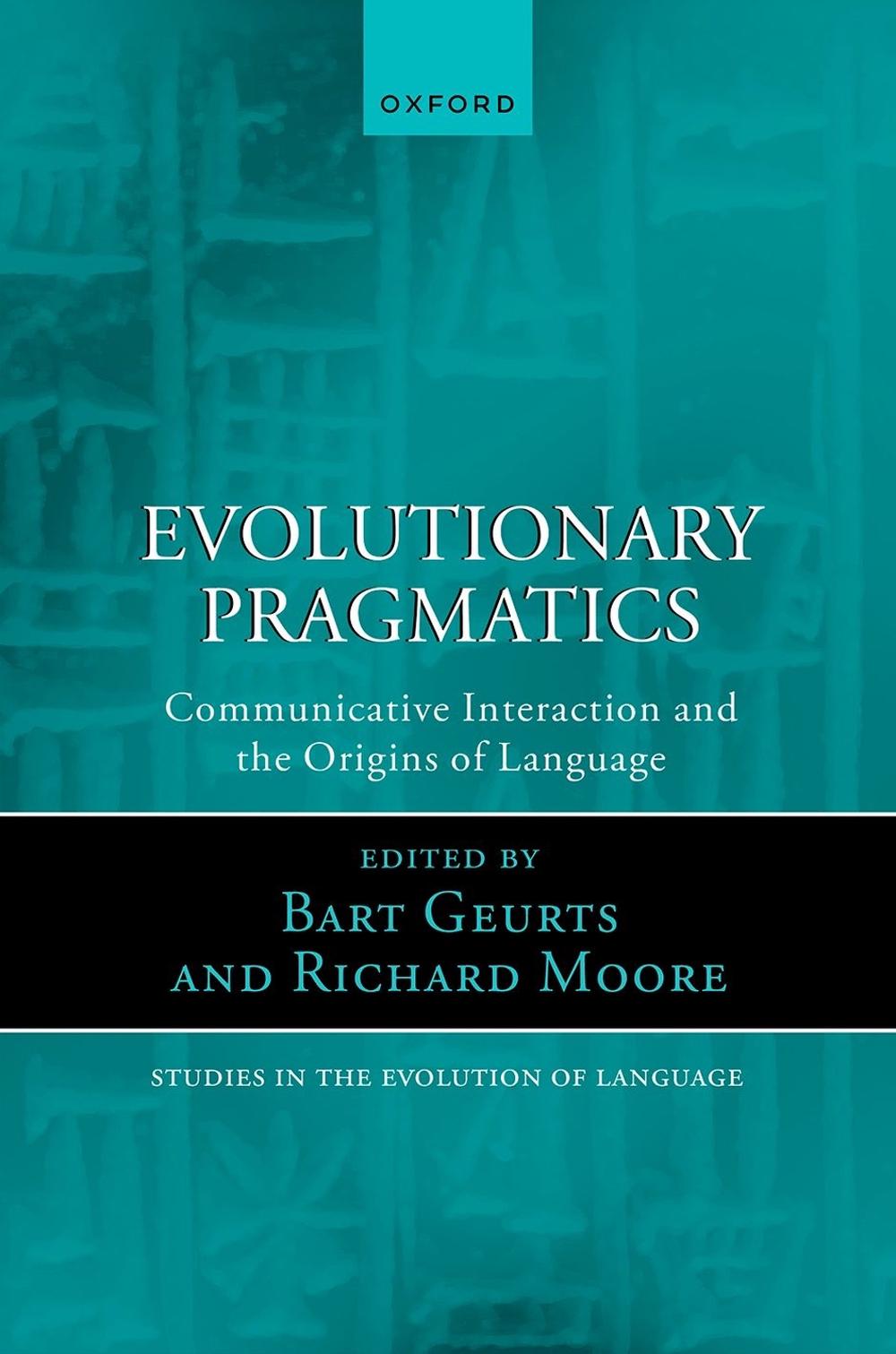
Evolutionary Pragmatics
communicative interaction and the origins of language
$360.52
- Hardcover
336 pages
- Release Date
21 November 2025
Summary
Evolutionary Pragmatics: Unveiling the Origins of Communication
This volume delves into the burgeoning interdisciplinary field of evolutionary pragmatics, examining both the evolution of abilities crucial for pragmatics and the pivotal role of pragmatics in the evolution of language itself.
The biological evolution of linguistic capacities and the cultural evolution of natural languages were both fundamentally shaped by the communicative interactions of our ancestors. Given …
Book Details
| ISBN-13: | 9780192871206 |
|---|---|
| ISBN-10: | 019287120X |
| Series: | Oxford Studies in the Evolution of Language |
| Author: | Bart Geurts, Richard Moore |
| Publisher: | Oxford University Press |
| Imprint: | Oxford University Press |
| Format: | Hardcover |
| Number of Pages: | 336 |
| Release Date: | 21 November 2025 |
| Weight: | 643g |
| Dimensions: | 160mm x 240mm |
You Can Find This Book In
About The Author
Bart Geurts
Bart Geurts is Professor of the Philosophy of Language and Logic at Radboud University, Nijmegen. His main research interests are in semantic and pragmatic theory, but he has also carried out experimental research and has published on topics related to language development, language change, reasoning, social cognition, and evolution. His many publications include Presupposition and Pronouns (Elsevier, 1999) and Quantity Implicatures (CUP, 2010).
Richard Moore is Associate Professor of Philosophy and UKRI Future Leaders Fellow at the University of Warwick, having previously held positions at Humboldt University Berlin and the Max Planck Institute for Evolutionary Anthropology in Leipzig. His Communicative Mind research group conducts philosophical and empirical research on the relationship between communication and theory of mind in human and non-human great apes.
Returns
This item is eligible for free returns within 30 days of delivery. See our returns policy for further details.




